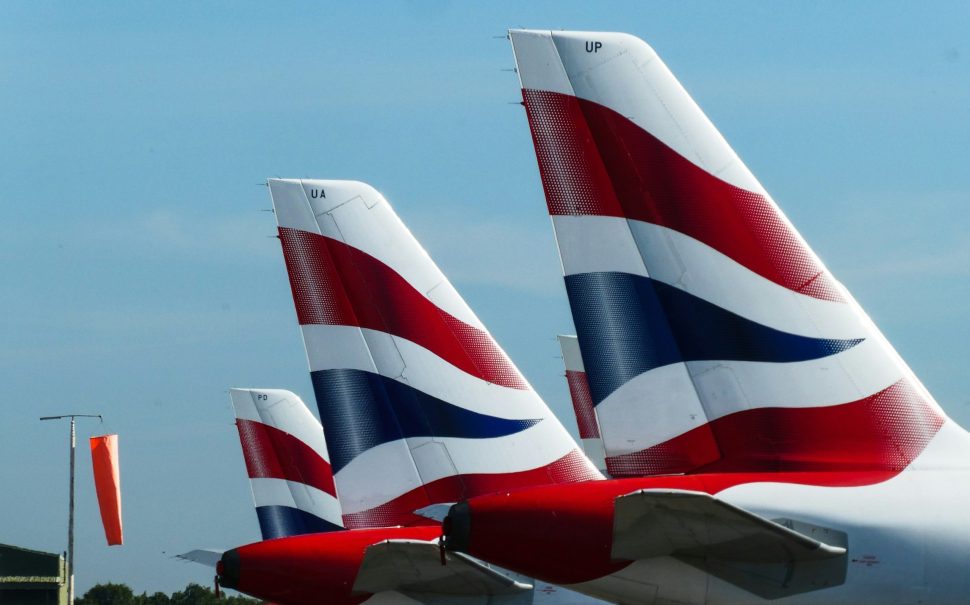The United Kingdom is seeing a steady recovery in tourism since the Covid pandemic, despite the ongoing challenges posed by Brexit.
In the first quarter of 2024, 8.73 million total visits were made to the UK by overseas residents, the latest figures from the ONS (Office for National Statistics) show.
This is a 5% increase compared to the 8.33 million visits made during the same period in 2019, pointing to a steady growth in the inbound tourism figures.
In 2023, visits made by European travellers amounted to approximately two-thirds of the 38 million total visits made to the country, meaning that five years post Brexit, European nationals still account for the majority of inbound tourism to the UK.
Joss Croft OBE, CEO of UKinbound said: “Over recent years, the UK’s inbound tourism industry has weathered the challenges of Brexit, which placed further burdens on travel and resulted in skilled workers leaving the industry, and the devastating impacts of the pandemic, which left travel grounded.
“We are proud that our industry has remained resilient, continues to grow and looks set to contribute over £33 billion in visitor spend to the UK economy this year, an increase on 2024 and above 2019 levels.”
The inbound tourism sector is one of the UK’s most significant export industries and contributors to the UK economy, and according to an ONS estimation in 2023 it supported 1.2 million jobs.
The latest figures reveal that in the first quarter of 2024 alone a total of five and a half billion pounds were spent by overseas residents, which is a 15% increase from the £4.8 billion figure spent in the first quarter of 2019.
According to a report by the House of Commons Library: “The government has set an ambition for visitor numbers to the UK to reach 50 million by 2030, and has said it will establish a new Visitor Economy Advisory Council to work with industry on tourism and design and deliver a new growth strategy.”
In October 2021, the UK stopped accepting national identity cards as a travel document, meaning European travellers required a passport to travel to the country, a measure which sparked widespread controversy.
In a statement from the Home Office then Home Secretary Priti Patel said: “By ending the use of insecure ID cards we are strengthening our border and delivering on the people’s priority to take back control of our immigration system.”
UKinbound however believes the government should remove such barriers, as they continue to place inbound tourism at a competitive disadvantage compared with other nations.
Despite such worries, data from the Office for National Statistics shows that the number of visits made by European residents surged from 158,000 in the first quarter of 2021, to 2.9 million in the last quarter of that year.
This 1738% increase suggests that this border policy did not significantly alter the overall trajectory of the post-Covid recovery of inbound tourism.
Croft said: “Our industry has faced the challenges of the last few years admirably and as the UK’s fifth largest export industry, it continues to play a vital role in economic growth, but international tourism is a competitive industry and we can’t assume international visitors will continue to choose the UK.”
In the second quarter of 2024, visitors from the USA, France, and Germany were the biggest spenders in the UK tourism market, with a total of £2,931 million spent amongst them.
But overall European residents continue to remain the UK’s most valuable tourism market, generating the highest spending.
In 2023 they accounted for 43.2% of the total spending by overseas residents.
Aside from London, which is one of the most visited cities in the world, ONS data shows that from April to June 2024 the second most visited UK region by Europeans was the South East, despite Scotland seeing the most European spending.
During this three-month period, London attracted 3.3 million visits from Europe, accounting for nearly half of all European visits, while the South East received 851,000, which made up 11%.
The government’s recent decision to expand the electronic travel authorisation (ETA) to European visitors potentially presents a further obstacle for European tourists.
From 2 April, EU, EEA and Swiss nationals who wish to visit the UK now require a travel permit that can be bought online for £16 and allows multiple journeys to the UK for stays of up to six months at a time over two years.
Gabriella Bettiga, a UK-based immigration solicitor said: “The purpose of the ETA is to enhance border security and there is no intention of deterring tourism.
“However, EEA visitors are generally not used to visa requirements and therefore the need to apply for an ETA in advance, potentially waiting up to three working days for approval, might discourage last-minute trips.”
This border control measure was introduced in stages throughout parts of the world, starting from Qatar in November 2023, and subsequently expanding to all other countries.
Whilst for non-European travellers the introduction of the ETA meant more accessible and cost-effective visits to the UK, for European nationals it established a new layer of bureaucracy which could deter them from making the visit.
Bettiga added: “The inclusion of EEA nationals in the ETA cohort shows that the UK government does not intend to give any ‘preferential’ treatment to European nationals, and privileges border control and security concerns over maintaining a special relationship with the EEA/EU.
“The ETA requirement may make EEA nationals less welcome, and deter tourism.
“This could particularly affect weekend travellers, schools or organised groups that might opt for a different destination in order to avoid the additional bureaucracy, or to a lesser extent, business visitors.”
Holidays remain the most common reason for visiting the UK among residents of all countries, this category includes trips for amateur sports, cruises, and inclusive tours.
Oscar Magrini, an Italian university student who travelled to London in May to visit a friend, said: “Whilst I did find the £16 fee frustrating, the ETA certainly didn’t put me off from making the visit.
“When I found out that I needed a special travel permit to visit the UK I thought it was quite normal, after all the UK is not part of the EU and plenty other countries like the US demand similar requirements.”
Like the post-Brexit border policy adopted in October 2021, analysis of the data from the past six years suggests that the extension of the ETA to EEA nationals is unlikely to have a detrimental effect on inbound tourism.
However, UKinbound warns that the government should be taking measures to ensure it meets its 50 million goal by 2030.
Croft said: “We stand ready to support the government in this welcome ambition, but to meet this target it is essential that they remove barriers to growth, including introducing a UK/EU Youth Mobility Scheme, restoring VisitBritain’s international marketing budget and tackling the sky-high costs of travelling to the UK, including aviation taxes and visa costs.”





